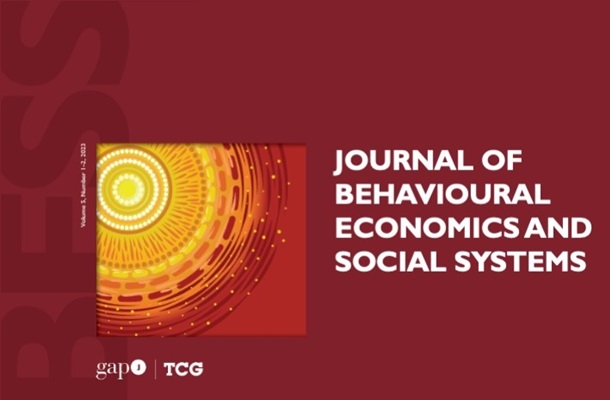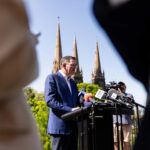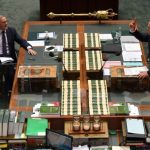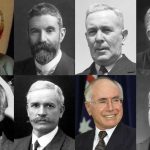What can we learn from Indigenous polycentric self-governance?

Our new issue of BESS® was in production when Australians went to the polls in a national referendum on the Indigenous Voice to Parliament. Debates about the proposed change and its implications for the future of Australia have been a mainstay of traditional news, social media and public conversations since the idea was first proposed in the 2017 Uluru Statement from the Heart.
While the defeat of the Voice referendum on 14 October will no doubt be the subject of deep analysis, reflection and discussion for years to come, BESS® authors continue to explore how the self-governing practices found in Indigenous societies can inform our modern governance structures to protect and share the wellbeing of humanity and the environment we depend upon.
I therefore commend the article on ‘Polycentric self-governance and Indigenous knowledge’ by Dr Shann Turnbull, Prof Natalie P. Stoianoff and Prof Anne Poelina, discussing how principles underlying Australian Indigenous governance can be embedded into organisational entities, building on Elinor Ostrom’s principles for sustainable governance of a common pool of resources.
This form of polycentric self-governance can aggregate the voices of minorities representing local environments up to a global level and contribute to social sustainability. The authors use case studies, systems science and biomimicry to analyse polycentric self-governance and ways organisations can adopt it for the benefit and wellbeing of all stakeholders.
The issue of sustainability is also at the heart of our opening article by Prof Peter Söderbaum. In ‘Conceptual framework and language for sustainability politics’, he questions the traditional neoclassical economic paradigm, arguing that despite its importance to the current political-economic system, it is failing to react to broader societal challenges, including global economic development. He proposes ecological economics as a new conceptual framework and language of discourse to shift our focus towards sustainable development and strengthen democracy.
New forms of economic and political models to deal with social and environmental consequences of unchecked growth are also the subject of ‘Money changes everything’ by Peter Fritz AO and Nicholas Mallory. They argue that reimagining our concept of value is the key to reshaping the global economy to promote long-term sustainability ahead of short-term consumption. If people worldwide are to enjoy the fruits of humanity’s progress, we must shift our collective ingenuity towards doing more with less and healing the living planet we all depend upon.
These challenges also require new decision-making frameworks, as Alison Sheehy highlights in her summary of ideas and recommendations from the Nobel Prize Dialogue Sydney 2023 Virtual Event. Held in June, the dialogue brought together over one hundred and forty participants worldwide to discuss “The Future of Decision Making: From Personal Choice to Planetary Impact”.
Participants considered the implications of artificial intelligence for democratic processes and new ways to engage the public in decision-making. Co-host Global Access Partners will now establish a second track taskforce to examine ways to incorporate long-term thinking into democratic decision-making, particularly in the Australasia context. Our Editorial Board is following these developments with keen interest and hopes to report on the outcomes of the Taskforce’s work in due course.
The challenges facing democracy include the growing gap between the expectations of voters and their perceived satisfaction with the performance of politicians and government institutions. Fergus Neilson builds on his dissertation on ‘Narrowing the trust divide’ by interviewing current and former Australian politicians. He argues that if liberal democracies are to resist their current adversaries, they should acknowledge this Trust Divide, understand its causes, recognise its risks, and implement reforms to restore voter trust and institutional performance.
Finally, I am pleased to introduce the articles written by two international academic teams, both touching on second-track processes.
Prof Arvind Singhal from the US and Prof Erik Bjurström from Sweden suggest that behavioural economists interested in solving wicked problems should leverage positive deviance – an approach for spreading innovations by identifying positive outliers’ novel and effective practices.
In their article ‘Advancing behavioural economics through positive deviance: Attending to the microworld of second-track processes’, they contend that positive deviance is a vital part of problem-solving in second-track processes through the conversation, coordination and collaboration, which links multiple stakeholders with diverse lived realities, agendas and constraints.
In ‘Towards Society 5.0: Enabling the European Commission’s Policy Brief ‘Towards a sustainable, human-centric and resilient European Industry’, Danish business academics Prof Christian Nielsen and Prof Jacob Brix propose a ‘society transition model’ to ease the shift towards the EU’s vision of Industry 5.0 and the broader idea of a super-intelligent, data-driven Society 5.0. This systematic, second-track, bottom-up method model has already been tested in the Danish region of Aalborg.
BESS Volume 5 Number 1-2 is available on Aalborg University’s Open Journal System and Global Access Partners’ website
James Guthrie AM is a Professor Emeritus at the Department of Accounting and Corporate Governance in Macquarie University and Editor-in-Chief of the Journal of Behavioural Economics and Social Systems (BESS). He was Head of Academic Relations at Chartered Accountants Australia and New Zealand from 2008 to 2017.












